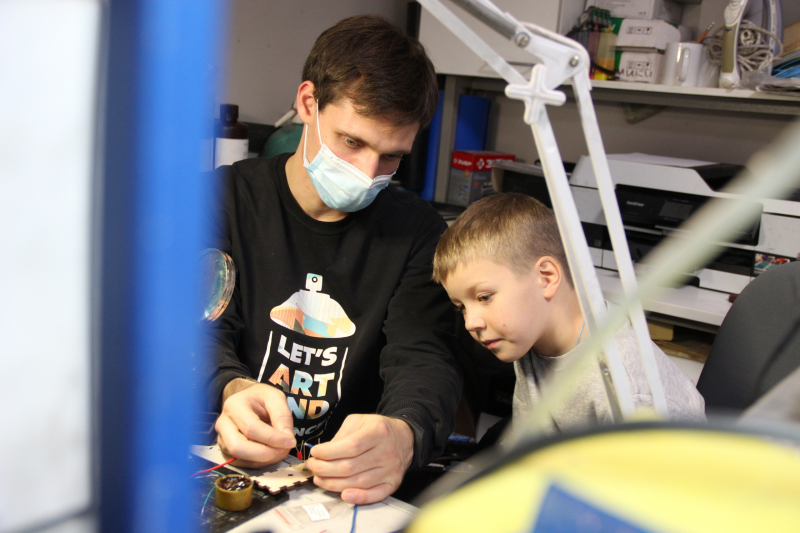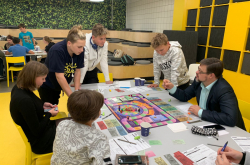What are some critical traits of successful inventors?
Anyone can become an inventor. It all depends on motivation. Some are driven by laziness, so they invent handy assistant devices, others are passionate about the very idea of creating something (such people are usually extremely proactive and find everything exciting and worth-a-try), while still others are inspired by their altruism and a desire to make people’s lives easier.
Some things more important for future inventors, in my opinion, are curiosity, perseverance, and a good attention span. While coming up with a new idea may not be hard, it’s just the first step, and you still have to find ways to bring this idea to life. This is when many give up as they face the first challenges. That’s why it’s crucial to teach children to overcome such difficulties, we have to demonstrate that it is important to be disciplined and finish what was started against all odds. The crucial traits of successful inventors largely depend on their upbringing, so they can and should be developed.
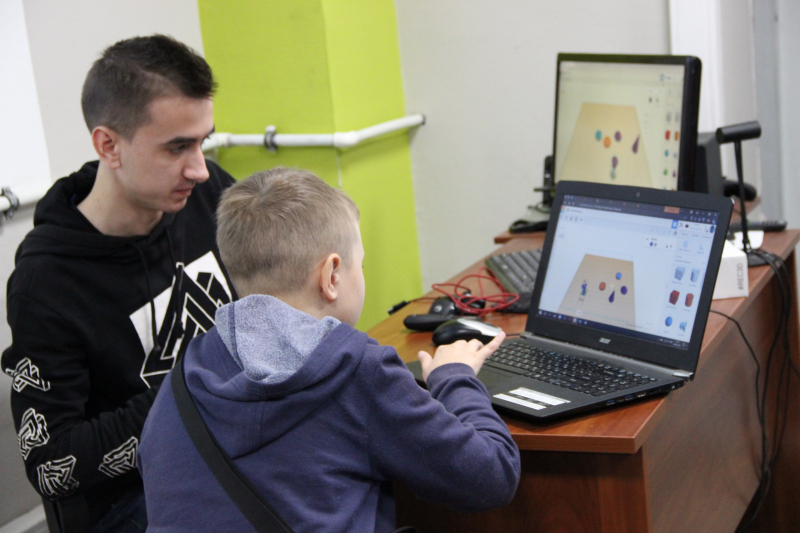
How can children patent an invention or create their own project?
If a child already has a project idea and knows the next steps, it’s worth trying courses on technology entrepreneurship. Such a course will soon be available at ITMO.KIDS, too. There, we’ll teach children all the ins and outs of working on projects, developing products, generating ideas, and many other aspects. In case a child has a tech or an IT project but doesn’t know how to implement it yet, they should focus on developing their hard skills. For instance, coding a bot or processing digital data requires programming in Python, creating a website – web development skills, and making a robot – robotics engineering. ITMO.KIDS also offers courses in these fields. Together with the young inventors, you can watch videos on YouTube about similar projects and their implementation. There are so many options that it is simply impossible to list them all.
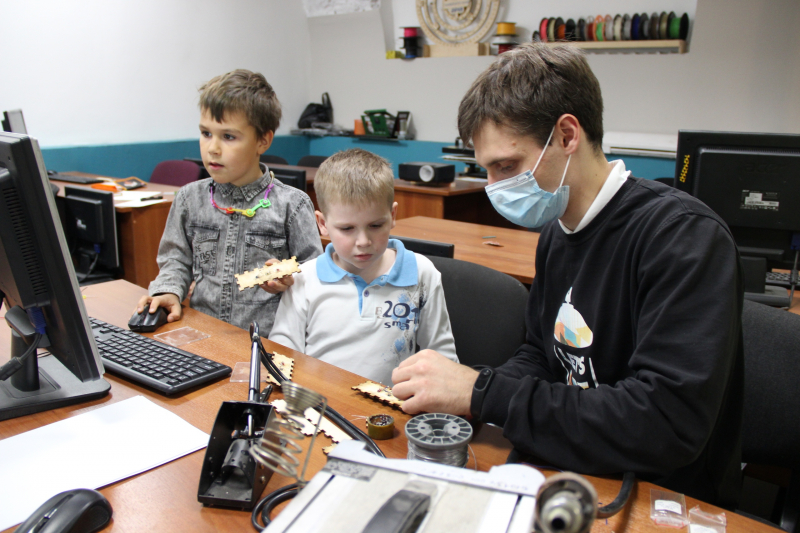
How can children choose the right field?
At a young age, it’s not always clear what to do, and it’s a common problem. You should listen to your child and ask them about their preferences and interests. It’s best to try different professions to see what they’d enjoy doing. That's precisely why we launched ITMO.KIDS. This project aims to help children immerse themselves in the professions of the future to find their path. It can also be of good help in generating a wide range of projects.
What fields does ITMO.KIDS offer?
ITMO.KIDS has numerous options: electronics, robotics, programming, design, and business. For each field, we have different class formats: courses (from 3 to 15 lessons), workshops, lectures, and schools. We regularly run free open classes, during which children learn more about our courses and fields, as well as understand whether they are interested in them or not. However, our key priority is still the digital field as ITMO has the greatest competencies there.
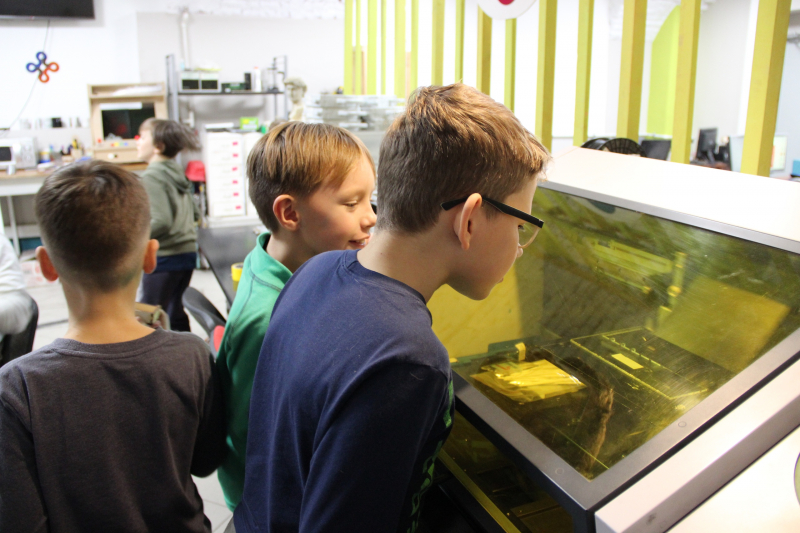
Let's say a child has a promising idea for an invention or a project. How can they implement it?
This one is easy. You just have to take your time to do the work. The key is to start and then everything will go smoothly. When you face problems, you should look for solutions, new project ideas, and think about improving what you already have. You can always seek help from mentors or specialists in the relevant fields. Our team has many experts, and even if you’re not a member of the ITMO.KIDS community, we are always open to interaction and are glad to support young talents. The main thing is to be proactive and project-driven.
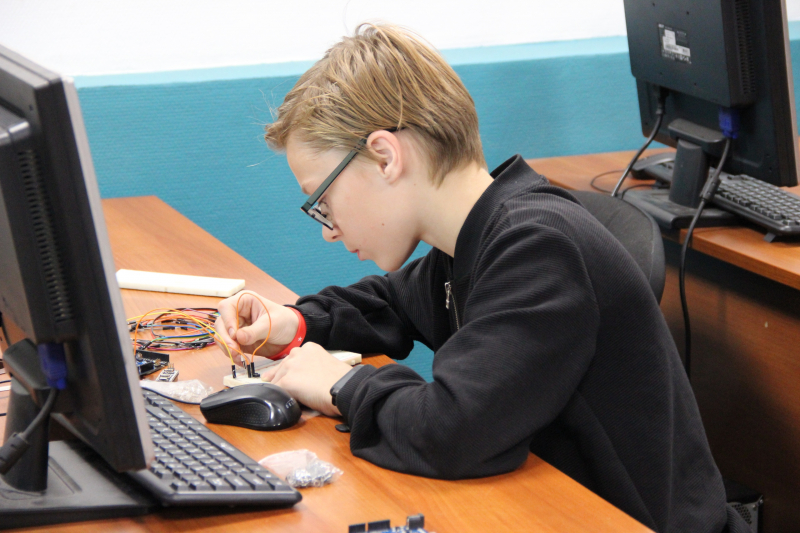
How does ITMO’s Technopark for children work?
Summer and project schools, which are based on a competitive selection, are the best choices for future inventors. There, we will divide them into teams to generate ideas for inventions, teach them the basics of robotics, circuit design, programming, and presentation, and then let them work on their projects under the supervision of our mentors.
Children use high-precision equipment, code, and then on the final day, they present their working inventions or their prototypes to the board. Some students carry on with their projects and participate in various contests even after the school. We don’t insist – but if a child chooses to continue the work, we are glad to help in every way.
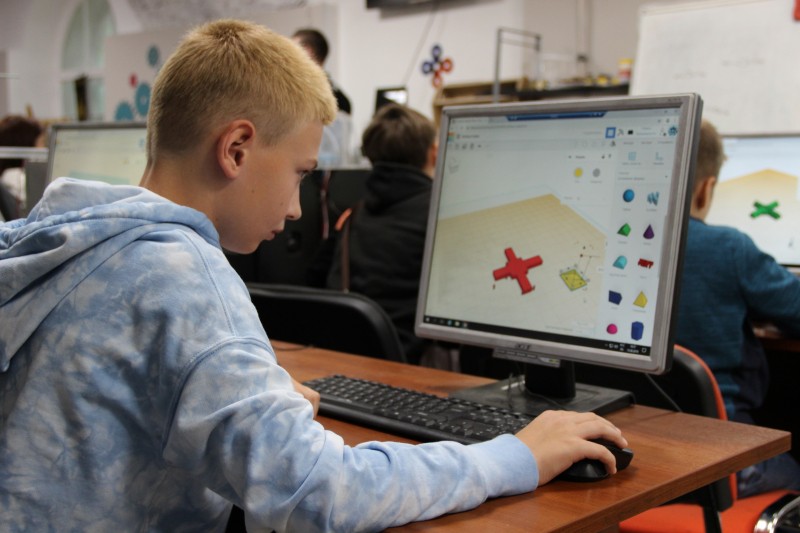
Can a child's finished invention be patented?
You can find a complete list of documents for patenting on the website of the Federal Service for Intellectual Property but whether this is necessary is another question. If someone wants to copy the idea, they will do it and maybe even improve it. For such tech giants as Apple or Samsung, patents do play a role but for startups, it’s often more beneficial to invest time and energy in product development.
ITMO University has special units that help students with patenting. It can be difficult for students to do it on their own, and the abundance of papers and bureaucratic work may seem daunting. So, if a child has a unique project, they can come to us.

What are some ground-breaking projects created at ITMO.KIDS last year?
The third stage of our Python programming courses includes a graduation project – a simple computer game. Our students have a vivid imagination, that’s why their games are usually cool. They also, for example, created radio-controlled robots, assembled and soldered electrical circuits. As the pandemic moved our courses online, we had fewer projects yet they all were extremely interesting. Students focused on the digital format and came up with amazing ideas for parsers, simple programs, bots, and so on.
How can one join ITMO.KIDS?
Follow our social media, explore our fields, decide on your favorites, check our schedules of upcoming classes and open workshops, and we’ll see you there. It’s that simple!
